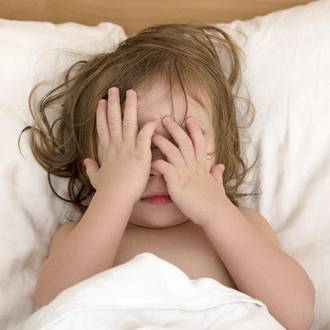Home > Hot Topics > Health & Wellbeing > Preschoolers > Quick guide to nightmares & night terrors in preschoolers
Shop
02399
https://www.under5s.co.nz/shop/Hot+Topics+Articles/Health+%26+Wellbeing/Preschoolers/Quick+guide+to+nightmares+and+night+terrors+in+preschoolers.html
Quick guide to nightmares & night terrors in preschoolers
|
It’s likely that your preschooler will experience nightmares and night terrors at some stage during their early development, but what's the difference? What are the signs you should look out for when it comes to nightmares and night terrors?
|
You might also be interested in ...
15 Reasons for babies & kids to see a doctor
You should always rely on your gut instinct as you know your child best, but here are 15 common reasons when you should take young kids to a doctor or seek out medical advice.
8 Sleep tips for the Christmas holidays
Even babies and kids who are usually good sleepers may find it difficult to get enough sleep or settle during the busy Christmas period. So here are some useful sleep tips for the Christmas holidays to help ensure your baby and kids sleep is not disrupted during this hectic time of year.
join usJoin us on social media for all our latest news. |
sign upSign up and receive our latest newsletters. |
|







What are the signs you should look out for when it comes to nightmares and night terrors?
Quick guide to nightmares & night terrors in preschoolers
10 Differences between nightmares & night terrors
Check out our quick guide to your preschooler's nightmares and night terrors and 10 of the more common differences.
1. Nightmares tend to occur in the early hours of the morning during Rapid Eye Movement (REM) sleep, whilst night terrors occur during deep sleep in the first part of the night.
2. When your preschooler is having a nightmare, they will settle when you touch and comfort them. However, if they’re having a night terror, they’re not easily consoled and comforting them can often make the situation worse.
3. Your preschooler may toss and turn during a nightmare but stay in bed, where as they may get out of bed and become aggressive if they’re having a night terror.
4. Whilst your preschooler might recognise you when they wake up from a nightmare, they often won’t recognise you at all when they’re having a night terror.
5. Nightmares are often scarier for your child, whilst night terrors can be scarier for parents.
6. After a nightmare, it’s likely your preschooler will wake up and cry out, but with night terrors, it’s hard to snap them out of it or wake them up.
7. It’s likely your preschooler will remember details from their nightmares, but will not be able to recall anything that happened during their night terrors.
8. Nightmares are often over very quickly, but it might take your preschooler a while to get back to sleep. With night terrors, they may last between 5 – 20 minutes, but your preschooler will go back to sleep almost straightaway when the episode is finished.
9. Nightmares are seemingly unrelated to family history or to sleep walking. Night terrors however are quite the opposite and are seen to have a genetic or hereditary component and are often correlated to sleep walking too.
10. Your preschooler's nightmares can sometimes be triggered by something scary they've seen or heard, by some sort of trauma in their life or increased if they haven’t had enough sleep. Night terrors can also be triggered by sleep deprivation, fever or physical over tiredness.
Check out our article on Nightmares vs Night Terrors in Preschoolers which goes into more detail and gives you tips on how to combat the possible underlying causes and how to stop your preschooler’s episodes.
More kids sleep articles to enjoy:
Source: This article was written by Kim Corley, a certified sleep sense consultant at Cherished Sleep.
Image source: BabyCenter